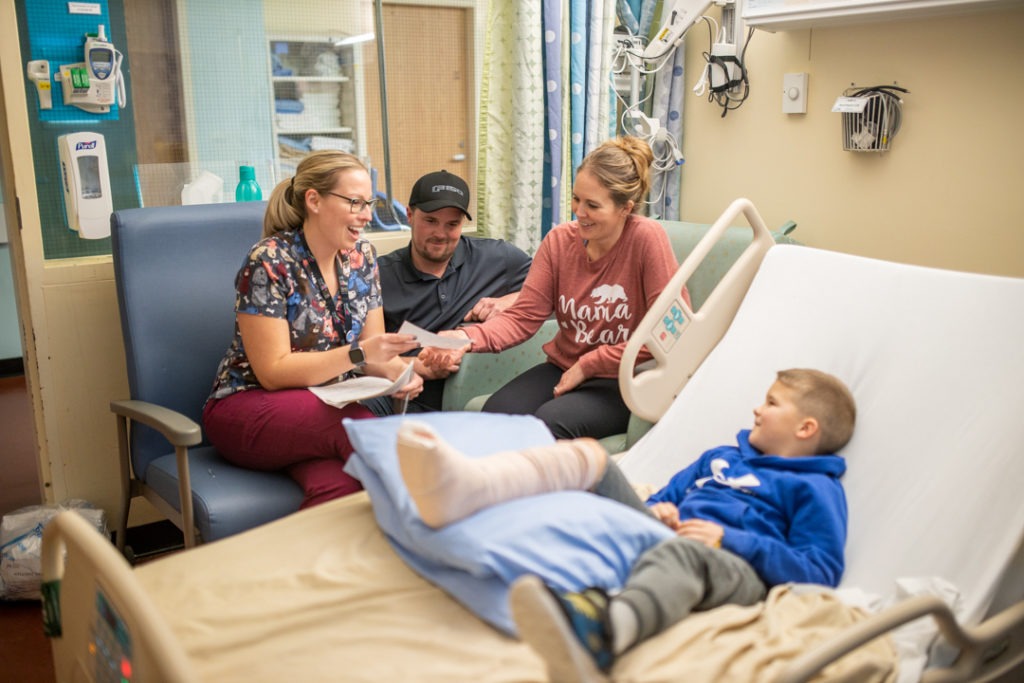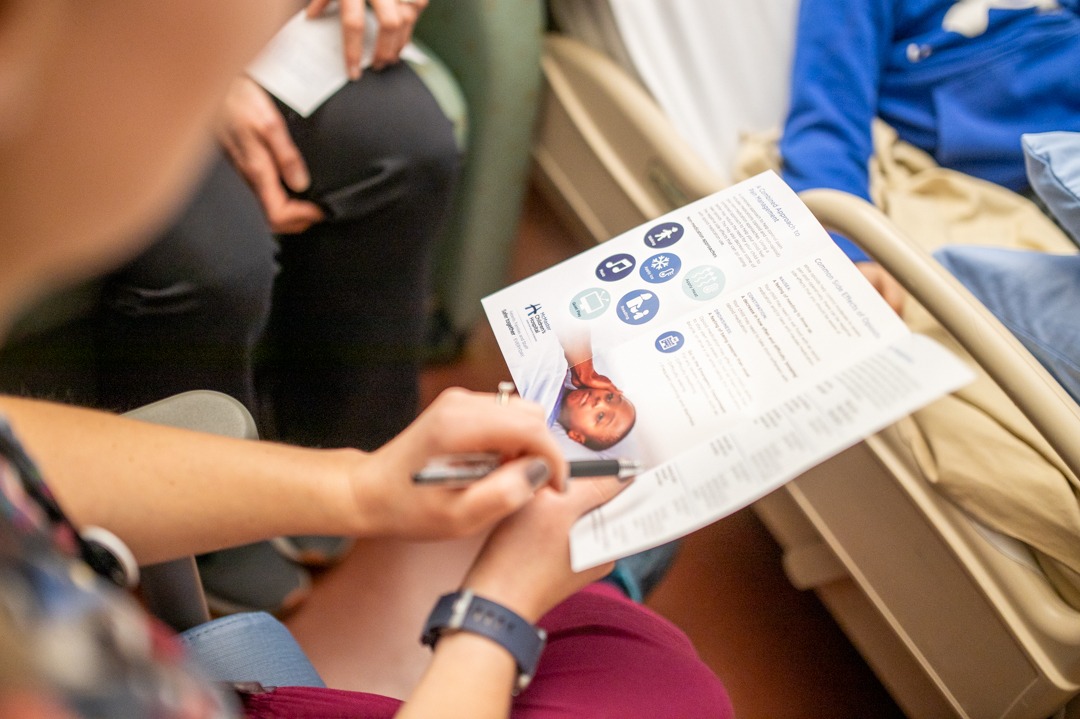
Pediatric Patient Safety team tackling the opioid crisis
McMaster Children’s Hospital (MCH) is doing its part to address the opioid crisis. Though a children’s hospital may not come to mind when you think about solutions to the widespread issue of opioid misuse and addiction, MCH has found several small ways to make a big difference.
Are opioids really a problem in pediatric surgery?
As a member of Health Quality Ontario (HQO), the hospital collaborates with other organizations to improve patient safety and quality. Last year, HQO launched a campaign to reduce unnecessary opioid prescriptions. While the team at MCH didn’t think this was an issue in pediatrics, they soon realized there was lots of room for improvement.
“When we started to dive in, we realized that many of our families had left-over opioids and would benefit from education around pain management, opioid safety and disposal of unused medication.” says Barb Jennings, a senior patient safety advisor at MCH.
Research shows that many people who become addicted to opioids start misusing them after receiving a prescription for surgical pain. Teens and young adults are most at risk.
40 per cent of patients were prescribed opioids at the time of discharge
The Patient Safety team reviewed pediatric surgery charts from a six month period and discovered 40 per cent of patients were prescribed opioids at the time of discharge from the hospital. They set a goal to reduce the average number of pills prescribed by 20 per cent by March 2020, while continuing to provide good pain management. When presented with the information, pediatric surgeons agreed that there were opportunities to reduce the amount of opioids prescribed and increase awareness and education.
Surgeons eager to reduce unneeded prescriptions
Dr. Helene Flageole says the whole surgical team is on board. “Our pediatric surgeons are committed to reducing unnecessary opioid prescriptions.”
A number of surgeons have already changed their way of prescribing opioids for patients. They’ve begun prescribing smaller amounts of opioids, and for shorter durations. No parents have expressed concerns related to pain after discharge, a sign that they can still manage their child’s pain effectively.

In addition to limiting unneeded prescriptions, the Patient Safety team has launched some important education initiatives. They designed an informative pamphlet that covers:
• Pain management
• Common side effects of opioid medications
• Safe storage and disposal of unneeded medication
Before discharge, a nurse gives the family the pamphlet and explains the different sections so they are educated on safe opioid use, and well prepared to manage their child’s pain at home. Each family also gets a follow up phone call to confirm they received this education before going home.
On track for a 20 per cent reduction
“We’ve had really good success with our follow-up phone calls, and we are seeing numbers trending in the right direction,” says Barb. “We are on track to reach our goal by March.”
The educational pamphlet is available for download. Remember, never share opioids, store them safely, and if you ever have unused pills, return them to a pharmacy for safe disposal.
